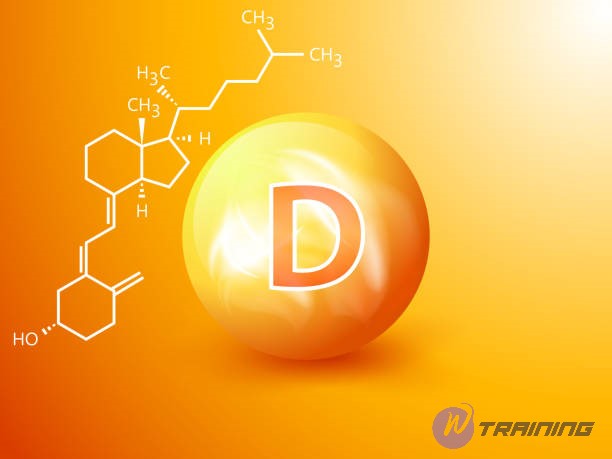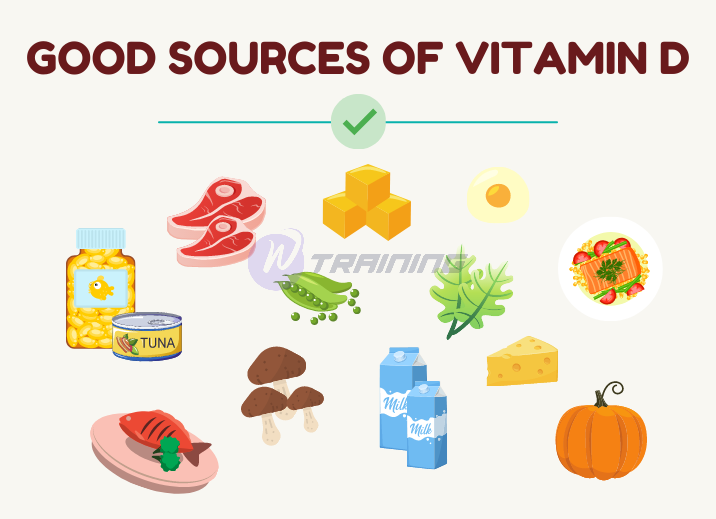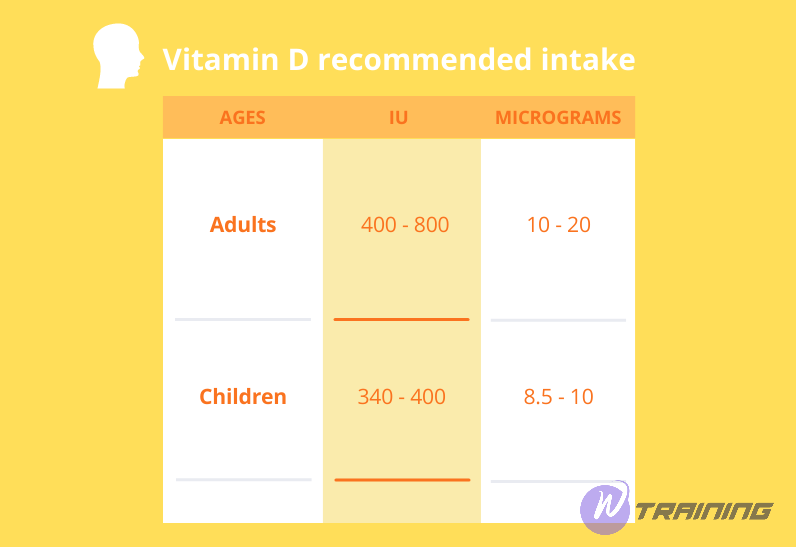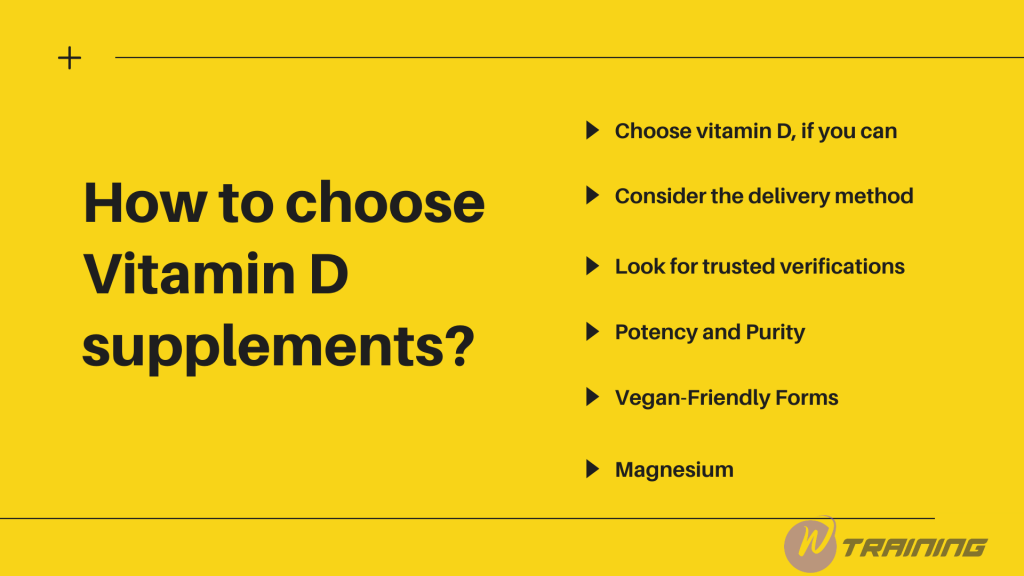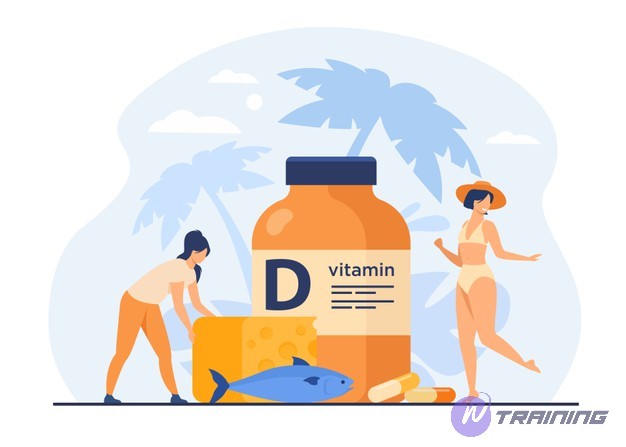Vitamin D is sometimes called the “sunshine vitamin” because it’s produced in your skin in response to sunlight. But with the exception of the sun, what are the best vitamin D supplements? Ways to get it effectively?
Contents
Vitamin D and its role
Vitamin D is a fat-soluble vitamin involved in several critical processes in your body, including calcium and phosphorus absorption, bone health, and muscle growth and development
These nutrients are needed to keep bones, teeth and muscles healthy. A lack of it can lead to bone deformities such as rickets in children, and bone pain caused by a condition called osteomalacia in adults.
Good sources
The body creates this vitamin from direct sunlight on the skin when outdoors. It is also found in a small number of foods.
Read more: Best Running Nutrition: What to Eat Before, During & After Runs
How much vitamin D do you need?
A microgram is 1,000 times smaller than a milligram (mg). Sometimes the amount is expressed as International Units (IU). 1 microgram of vitamin D is equal to 40 IU. So 10 micrograms of vitamin D is equal to 400 IU.
Should I take a vitamin D supplement?
-
Advice for adults and children over 4 years old
Because the light is not strong enough for the body to create vitamin D during the autumn and winter, you must acquire vitamin D through your food.
Because it’s difficult to get enough vitamin D from diet alone, everyone (including pregnant and breastfeeding women) should consider taking a daily supplement with 10 micrograms during the autumn and winter months.
Most people can get all of their vitamin D through sunlight on their skin and a well-balanced diet between late March and early April and the end of September.
During these months, you may choose not to take a vitamin D supplement.
-
People at risk of vitamin D deficiency
Some people will not make enough vitamin D from sunlight because they have very little or no sunshine exposure.
The Department of Health and Social Care recommends that you take a daily supplement containing 10 micrograms throughout the year if you:
-
- are not often outdoors – for example, if you’re frail or housebound
- are in an institution like a care home
- usually wear clothes that cover up most of your skin when outdoors
If you have dark skin – for example, you have an African, African-Caribbean or South Asian background – you may also not make enough vitamin D from sunlight.
-
Advice for infants and young children
The Department of Health and Social Care recommends that babies from birth to 1 year of age should have a daily supplement containing 8.5 to 10 micrograms throughout the year if they are:
-
- breastfed
- formula-fed and are having less than 500ml (about a pint) of infant formula a day
Children aged 1 to 4 years old should be given a daily supplement containing 10 micrograms.
How to choose the best supplement?
As with all supplements, not every bottle is created equal. The good news is that finding a high-quality supplement doesn’t have to be hugely complicated. Some factors to keep in mind:
Some of the best vitamin D supplements today
1. Vega Sport Pro Vitamin D Capsules
You don’t want any animal products in your supplements, do you? While some vitamin D3 supplements contain lanolin, gelatin, or shellfish, these 1,000 IU capsules are completely plant-based, making them an excellent choice for vegetarians and vegans. Each 60-dose bottle is also NSF-certified.
Shop now: Vega Sport Pro Vitamin D Capsules
2. Nordic Naturals Vitamin D3 Gummies
The wild berry flavor (and purple color) of these 1,000 IU gummies comes from fruits and vegetables, and they’re naturally sweetened with organic tapioca syrup and cane sugar. They are free of fillers and additives and have been approved by NSF International. Each bottle contains a four-month supply.
Shop now: Nordic Naturals Vitamin D3 Gummies
3. Nurish by Nature Made Vitamin D3
You only need one a day, and she describes them as “tiny and easy to take.” They are USP-verified and free of colors and artificial additives and come in 1,000, 2,000, and 5,000 IU dosages. Purchase a 30-day supply on its own or sign up for a monthly subscription.
Shop now: Nurish by Nature Made Vitamin D3
4. Kirkland Signature Extra Strength Vitamin D Softgels
Costco’s store-brand vitamin soft gels have everything you need—with zero frills. Each soft gel delivers 2,000 IU, and with 600 doses in a bottle, you won’t have to worry about restocking for a while. Best of all, they’re USP-verified.
Shop now: Kirkland Signature Extra Strength Vitamin D Softgels
5. MegaFood Vitamin D3 for Immune & Bone Health
MegaFood’s D3 comes with an organic whole foods combination that includes brown rice, broccoli, parsley, carrot, and beet, which the company claims can help the body utilize vitamin D more effectively. The tablets are non-GMO verified, dairy-, gluten-, and soy-free, and have been tested for hazardous herbicide, pesticide, and glyphosate residues.
Shop now: MegaFood Vitamin D3 for Immune & Bone Health
What happens if you take too much?
It can cause too much calcium to build up in the body (hypercalcemia)! This can weaken the bones and damage the kidneys and the heart.
10 micrograms a day will be enough for most people. However, there are some notes like:
- Do not take more than 100 micrograms (4,000 IU) a day as it could be harmful. This applies to adults, including pregnant and breastfeeding women and the elderly, and children aged 11 to 17 years.
- Children aged 1 to 10 years should not have more than 50 micrograms (2,000 IU) a day. Infants under 12 months should not have more than 25 micrograms (1,000 IU) a day.
- Some people have medical conditions that mean they may not be able to safely take as much. If in doubt, you should consult your doctor. If your doctor has recommended you take a different amount, you should follow their advice.
You cannot overdose on vitamin D through exposure to sunlight. But always remember to cover up or protect your skin if you’re out in the sun for long periods to reduce the risk of skin damage and skin cancer.
In summary, the amount can be customized for each person. Follow the notes written above to get the proper dosage. Good health!
Read more:
Can We Eat Peanuts For Weight Loss?
15 Lean Proteins You Should Be Eating: For Weight Loss
